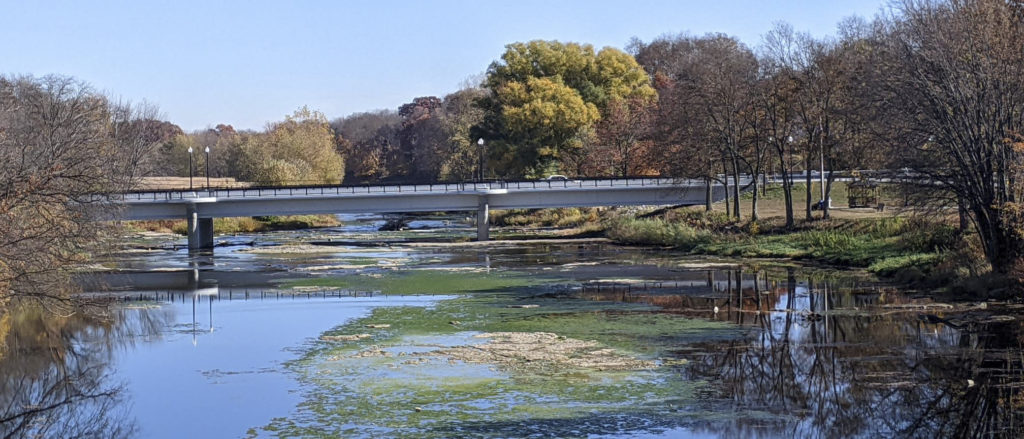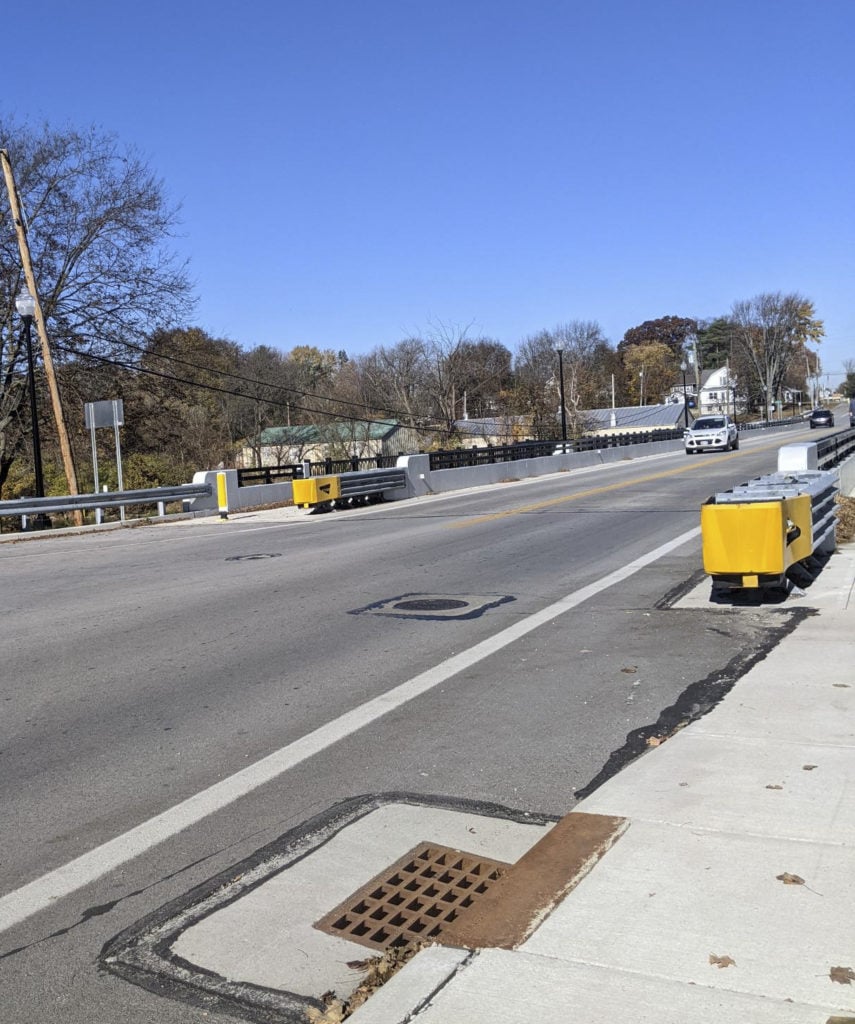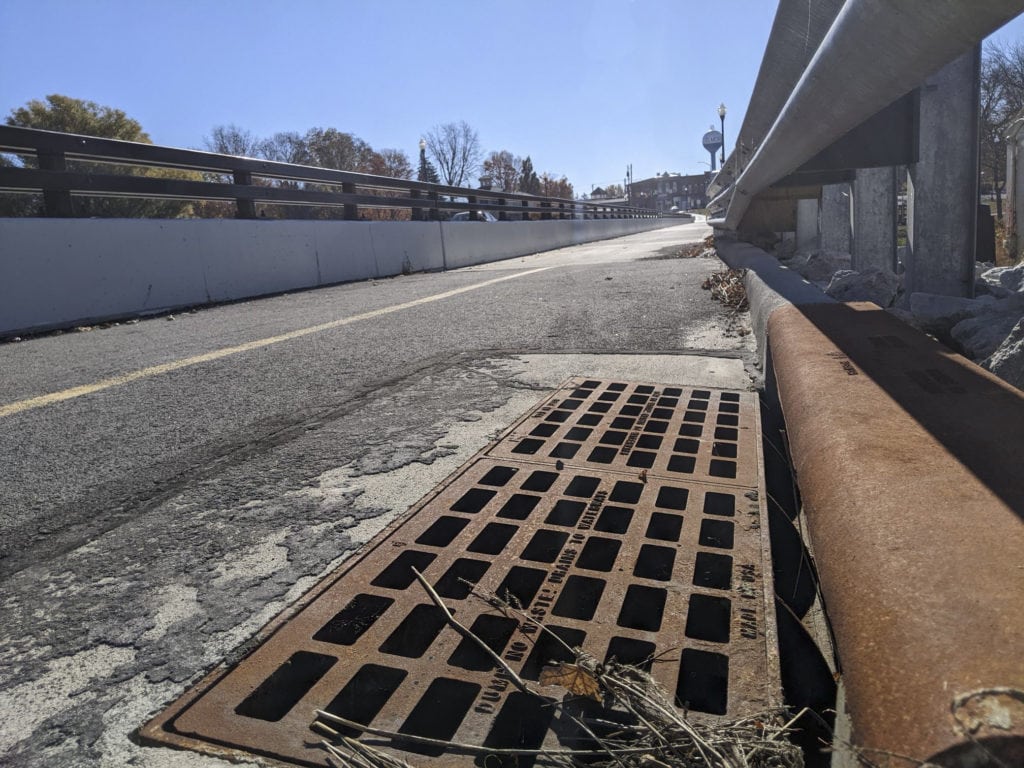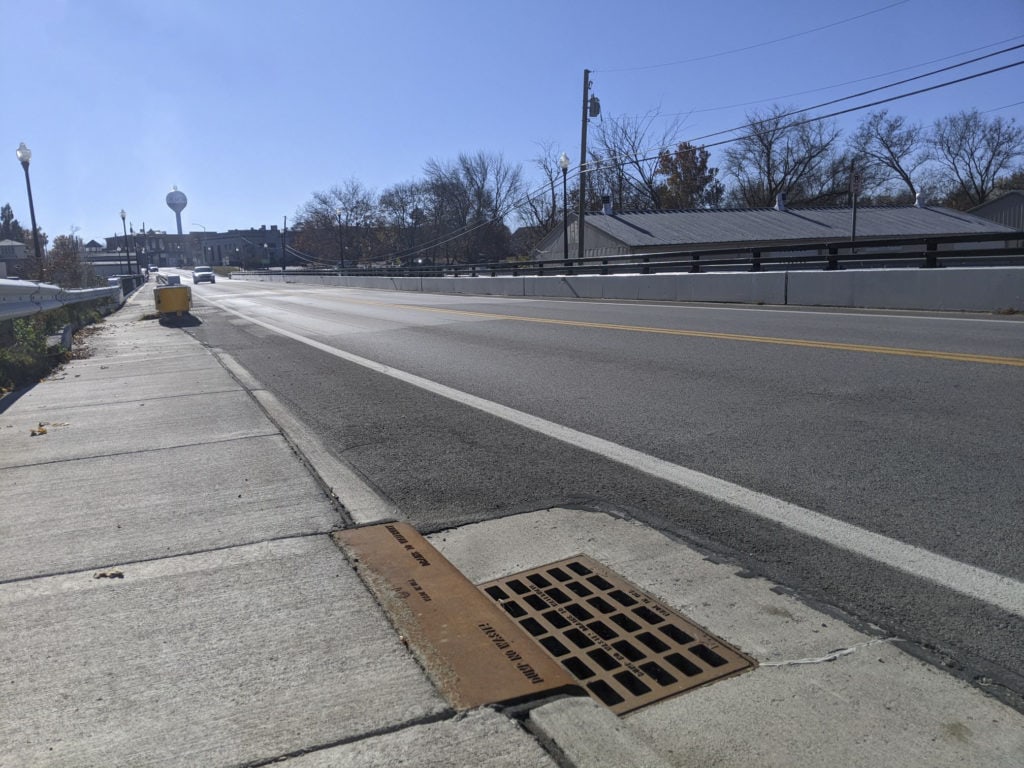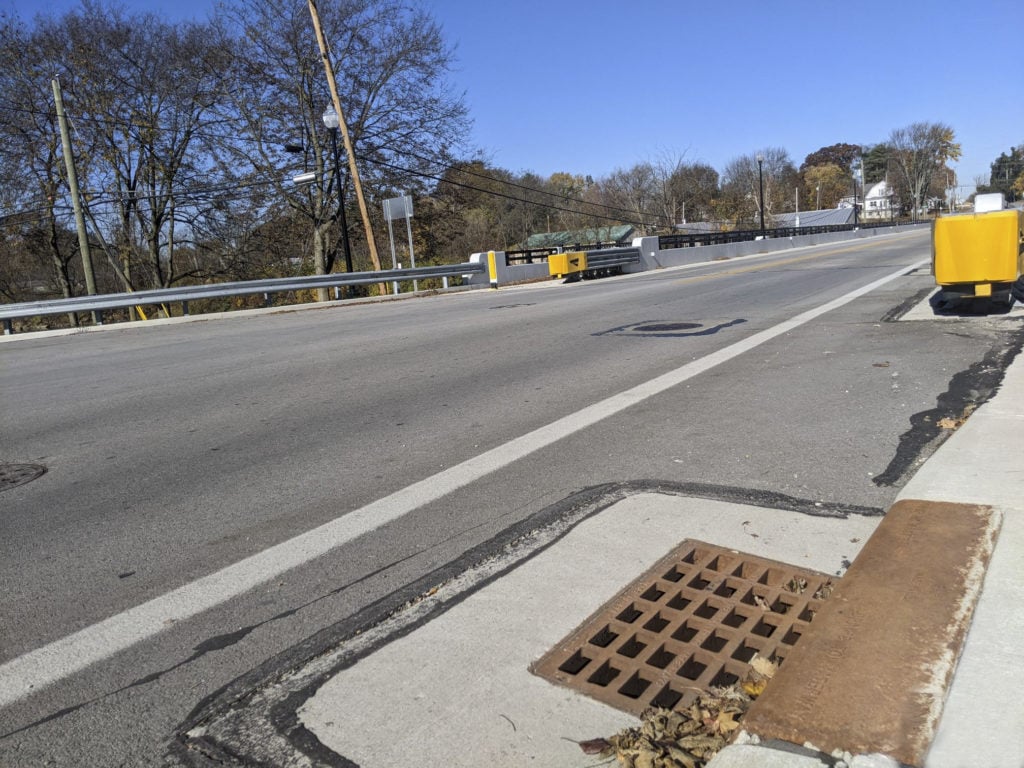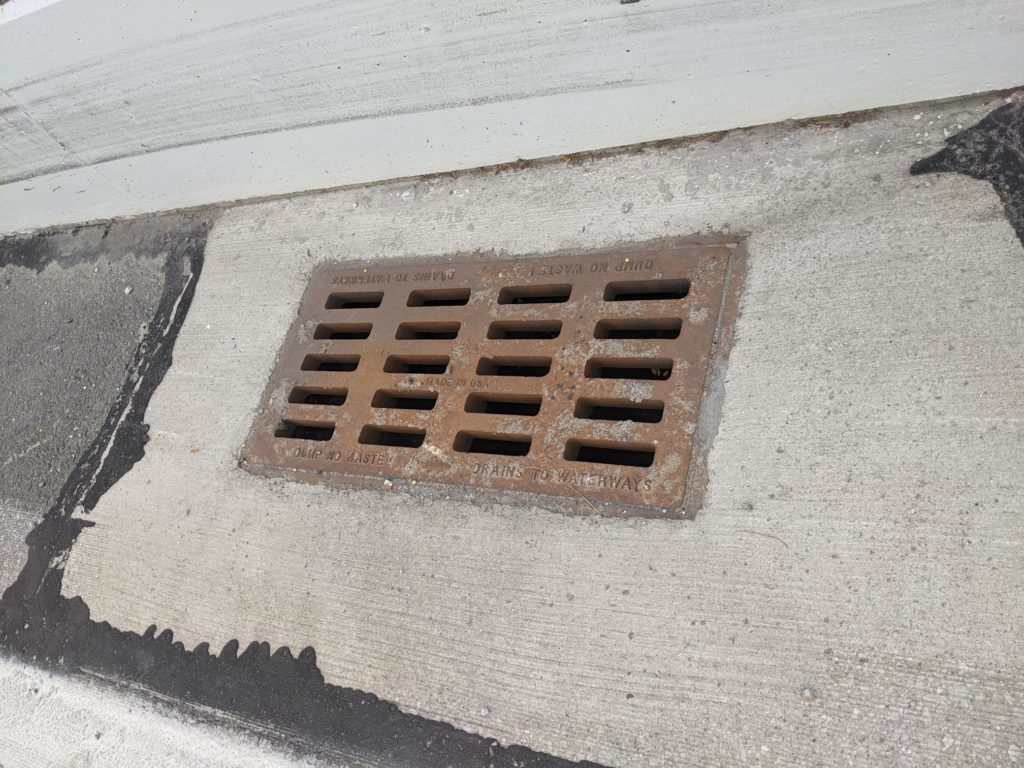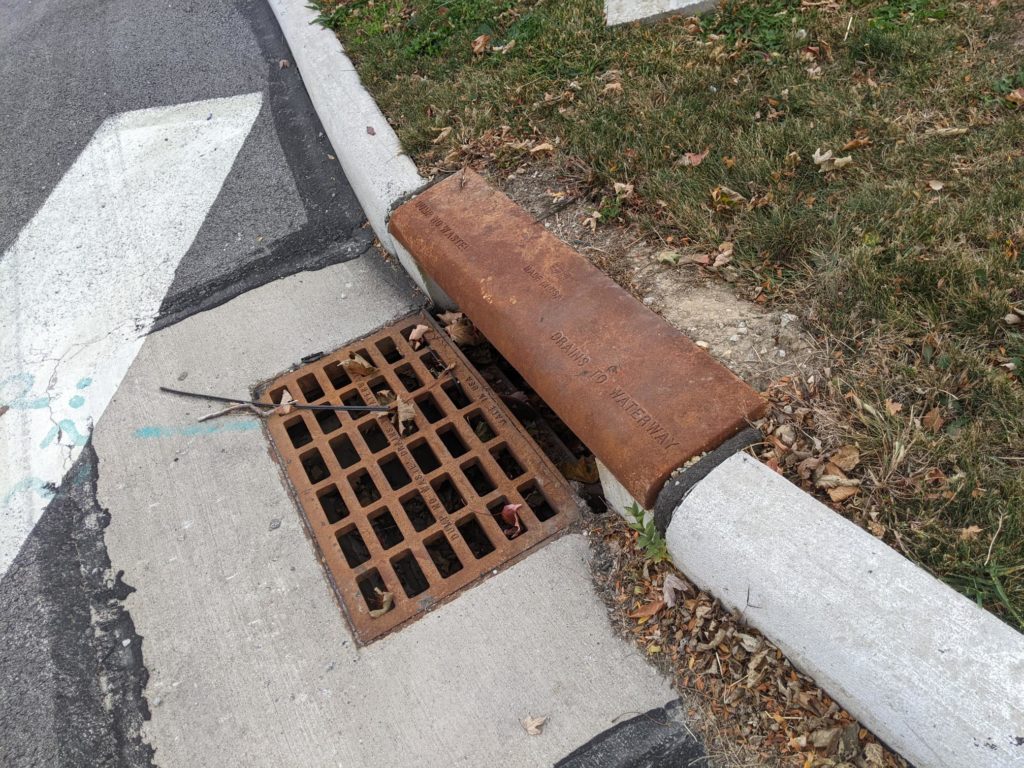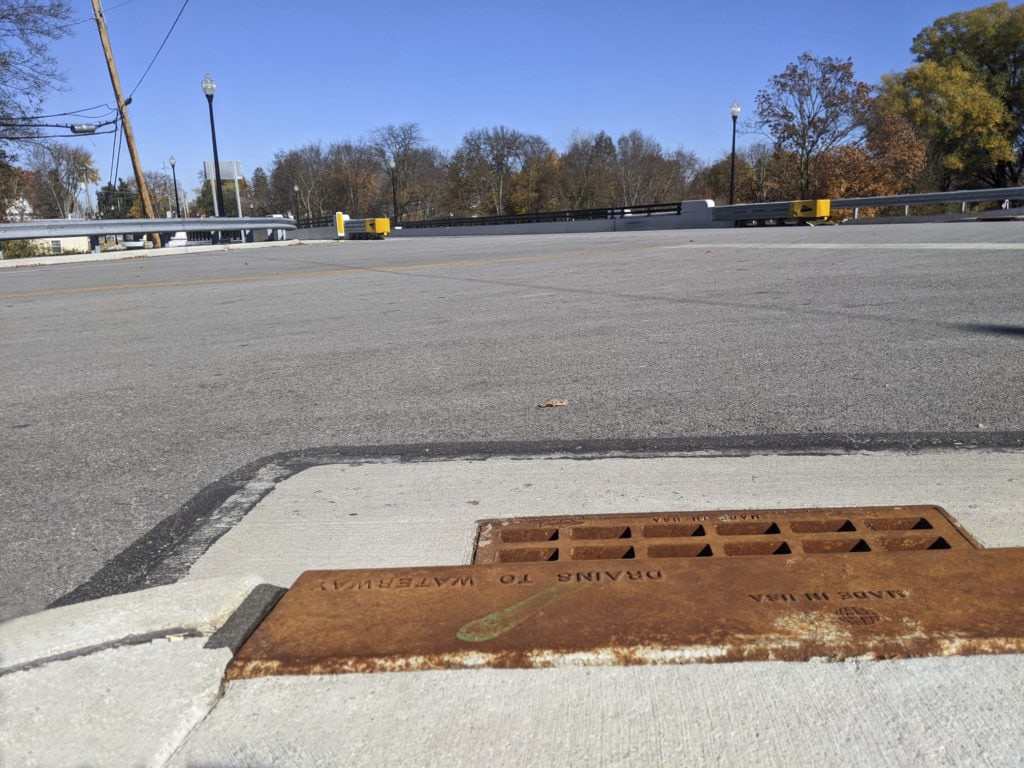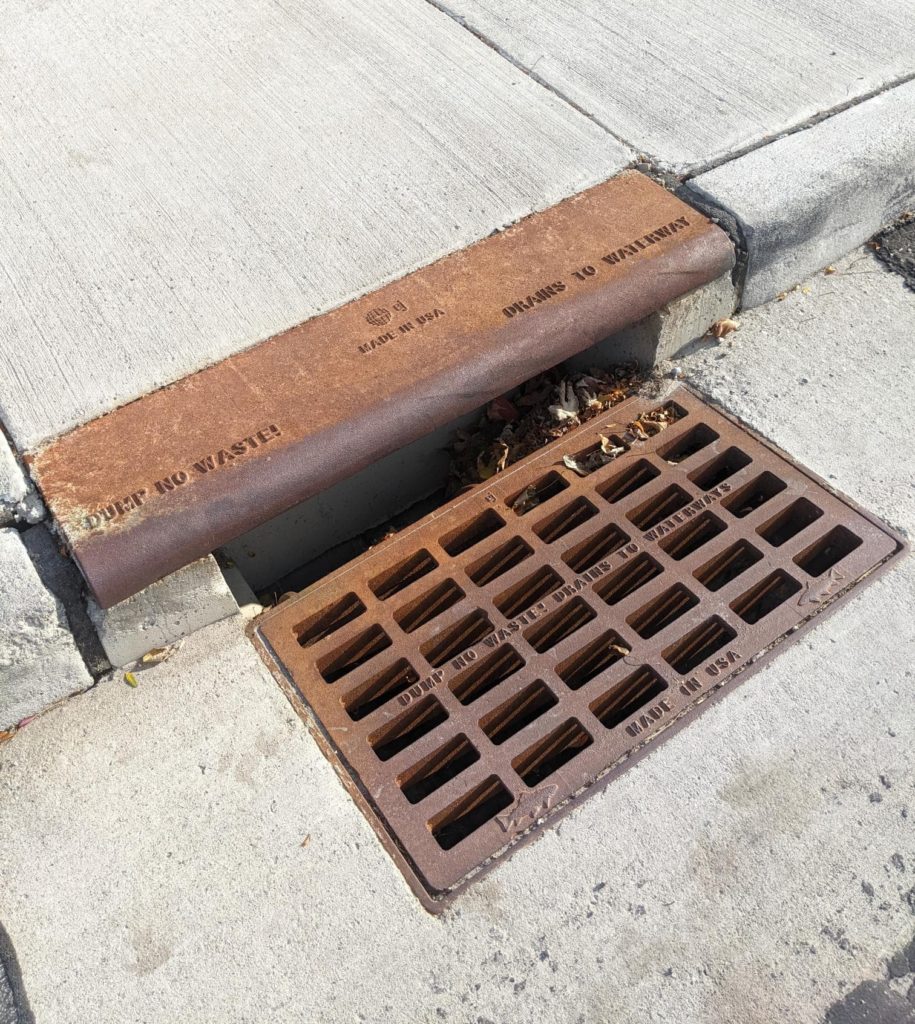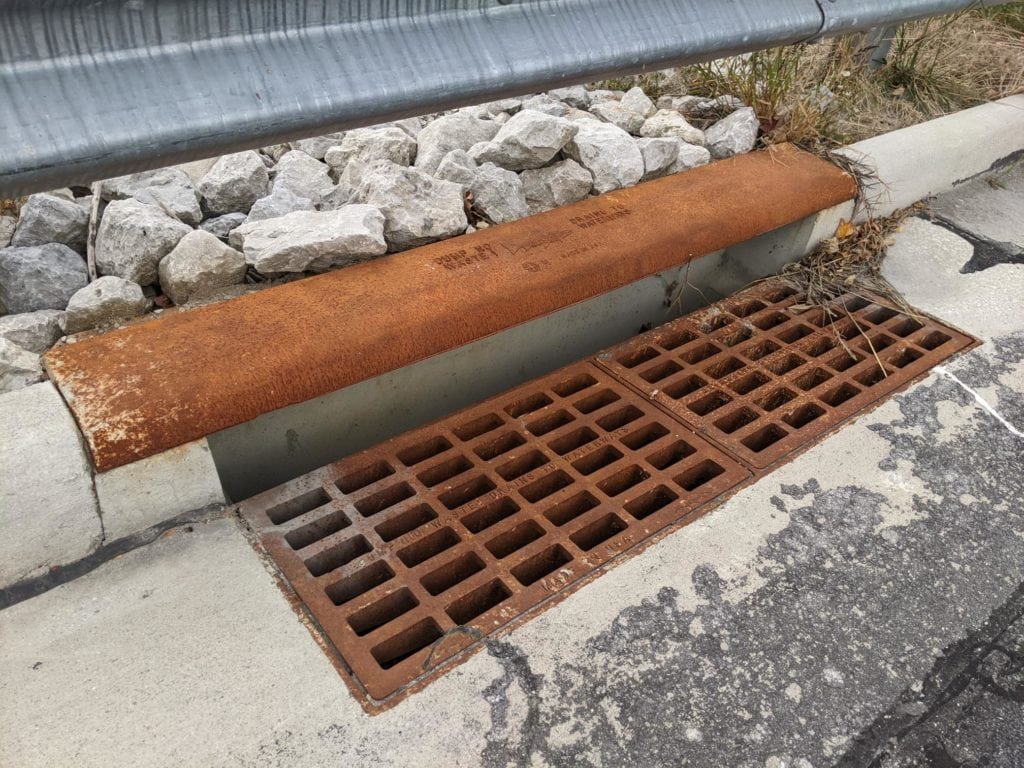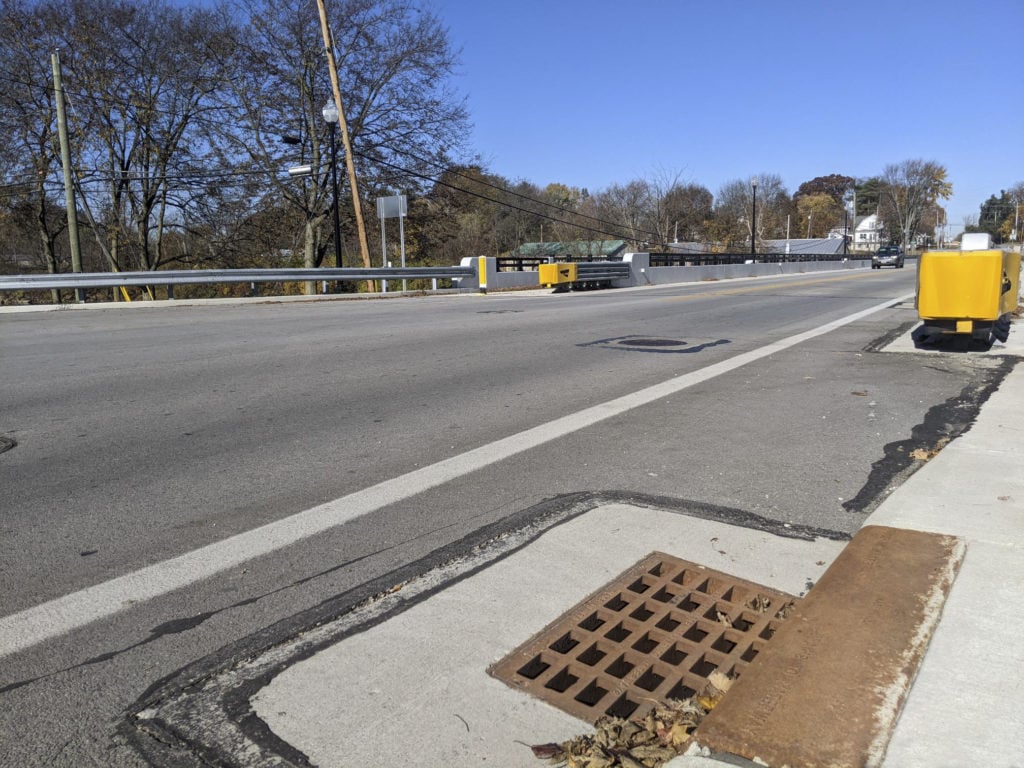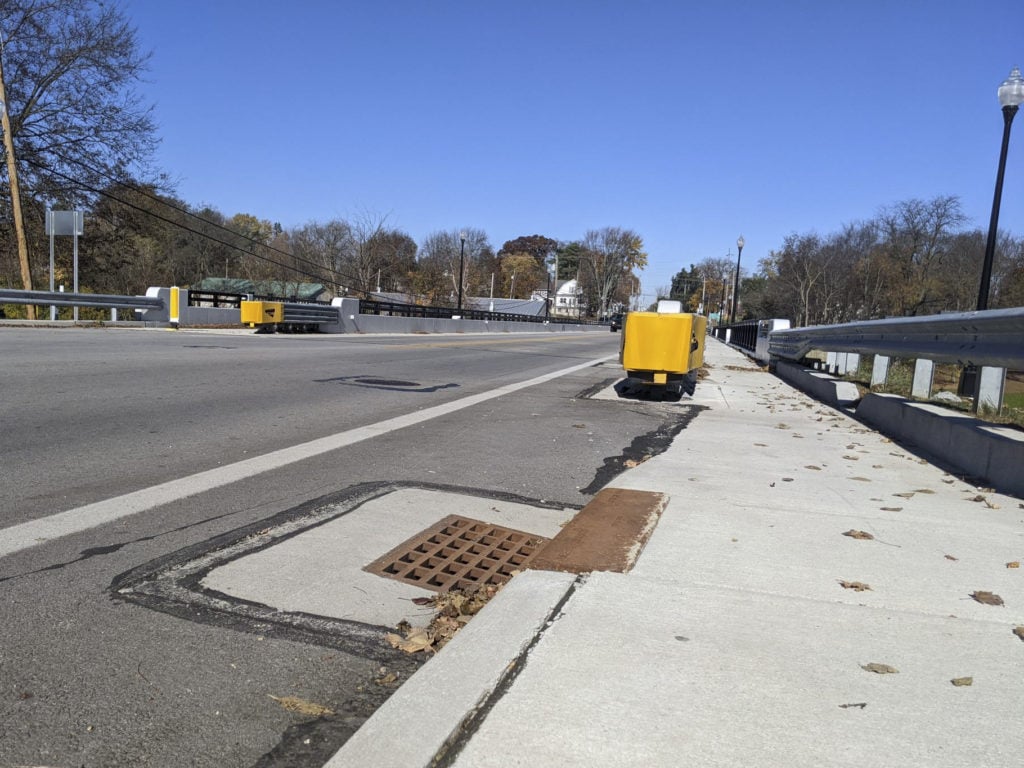GRATES AT A BRIDGE PROJECT – ELMORE, OHIO
Customers often ask us how long it takes for cast iron to mellow out to the brown patina typically seen in most parking lots. We are fortunate enough to be aware of a project that was completed in 2020. A bridge was replaced in the village of Elmore, Ohio which included several cast iron drains/grates. Elmore is located in Northwestern Ohio, just south of Toledo. The region sees average rainfall throughout the year and experiences wintery conditions from December thru March. Two years later, in 2022, only two show signs of leveling off. You can see by the accompanying images that the pieces vary in color. Some are still bright orange with a rough texture while others are smooth.
Merriam-Webster defines ‘rust’ as the reddish brittle coating formed on iron, especially when chemically attacked by moist air and composed essentially of hydrated ferric oxide. It’s a question we get asked a lot at Trench Drain Systems. Unfortunately, there isn’t a definitive answer due to a variety of factors.
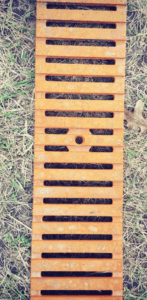
WATER
Cast iron is a shade of gray in its natural state. Any exposure to moisture, whether it’s a drop of water, condensation, dew or a humid day, is enough to start oxidation. You will see a significant change in color and texture within 24 hours of exposure.
CHEMICAL REACTIONS
Salt – Certain substances accelerate the moisture around the metal, making it rust more quickly. Without going into the science behind it, salt exposure can advance the rusting process. This means that cast iron is likely to rust more quickly in areas where road salt is used in the winter or in coastal areas near saltwater bodies of water.
Bleach – Containing sodium hypochlorite, bleach acts as an oxidizing agent which also speeds up the rusting process. If you are using cleaners containing bleach near cast iron grates, you may want to thoroughly rinse them in order to minimize extended exposure to the chemical.
Vinegar – First, you should NEVER mix bleach and vinegar together as it releases toxic chlorine gas. Vinegar contains acetic acid in a diluted form and also promotes rusting. Water mixed with vinegar intensifies the effect. As with any cleaners with harsh chemicals, ensure that you thoroughly rinse with water to increase the life of your cast iron grates.
TEMPERATURE
According to CorrosionPedia, every 50°F (10°C) increase in temperature doubles corrosion progression. Metals in general typically have a different temperature than their environment, witnessed in both direct exposures to sunlight (reaching temps of 150°F or 65°C). This causes a slow cool-off of metals that you see during the early hours of the morning in the form of condensation.
MATERIAL MAKE-UP
Cast iron contains a mixture of iron ore, steel, limestone, scrap metals and other alloys. The exact combinations can vary from foundry to foundry and from cast to cast. That said, cast iron with a higher content of iron will have a tendency to rust faster. We see this from time to time where grates from different ‘lots’ have distinct color variations.
__________________________
Trench Drain Systems is one of the largest stocking distributors in the United States who are committed to providing you with quick solutions to all your water runoff problems. Contact us for a free quote or for further information on drainage solutions visit TrenchDrain.com or DrainageKits.com
Phone: 610-882-3630
Email: Shop@TrenchDrain.com
Click here for a fast and free quote!

